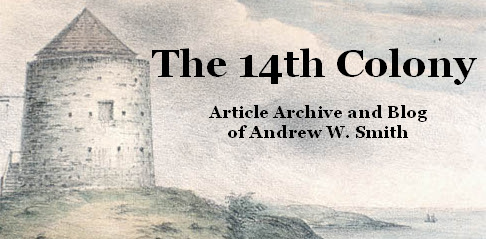Surely I can't be the first to make this point, but I'm not typically an appreciator of science-fiction and I managed to mostly avoid Doctor Who until a matter of months ago, and the question is screaming out at me: Is not Doctor Who in some part a science-fiction stand-in for the British Empire? If you strip away the science-fiction elements of it, are you not left with a fellow who seems very much like a typical Englishman, venturing far and wide, encountering all sorts of exotic tribes, and saving the world?
Sometime between the world wars, the Empire fell out of fashion with the British elite; after the second war, the progressives who were elected to erect Britain's dismal welfare state couldn't wait to evacuate the Empire, which incidentally led to a very predictable civil war between what became Pakistan and India; and by the 21st Century, any British elite calling himself "conflicted" about the Empire, instead of condemning it absolutely, would no doubt be suspected of crypto-imperialism and black-balled. As if a half-millennium of British history was all just a terrible mistake. Niall Ferguson, a few years back, advanced an apologetic sort of defense of the Empire, along the lines of, the Empire was redeemed in the end by the fact that Britain drained itself and its Empire defeating aggression and fascism in the world wars. But even that is a defensive argument, and a far cry from what was generally accepted until living memory, which is that the Empire was a mostly noble enterprise that made Britain great and elevated all Britain's possessions at the same time.
That is to say, the Empire is right out in Britain today, or at the very least it's out among the sort of people who make television shows for the BBC. And so I can't help thinking that Doctor Who is the sort of thing you'd wind up with if you were cut from the same cloth as Rudyard Kipling and Chinese Gordon and Cecil Rhodes -- you shared their impulse for adventurism and exoticism and world-saving -- but at the same time, you accepted every one of the nostrums of the 21st Century British elite, with all its political correctness and cultural relativism and pacifism and the rest of it.
(On that pacifism point: I suppose the sort of people who make television shows for the BBC couldn't very well arm The Doctor with some Time Lord equivalent to the Brown Bess or the Lee-Enfield Mk III, so they've given him a "sonic screwdriver" which conveniently does nearly anything he needs it to do in any given situation. They've created The Doctor as a pacifist of sorts, though apparently with some blood on his hands from the great and final Time War between his own race and the Daleks. One can't fault the makers of the show for keeping their hero's hands clean, and it is a family show, after all, but I have to say, it's easy to be a pacifist when the villains are imaginary and some ingenious and fantastical science-fiction story-writing can save the day.)
In the show, The Doctor has taken it upon himself to tirelessly and thanklessly patrol and save the universe; Rudyard Kipling called it "taking up the white man's burden". The Doctor encounters alien races and civilizations across time and space, some war-like and some peaceable, and all exotic and fascinating; so today it's the "Ood" or "Zocci", where in centuries past it might have been the Narragansetts or Hottentots of whom accounts were written and pictures drawn.
And for all the ecumenical effort in Doctor Who -- rendering the Earth as just one fairly inconsequential civilized planet in a universe full of them, preferring to treat all of humanity together rather than as individual nations or groups, etc. -- it is as parochial and England-centric (I use the terms affectionately) as any old imperialist ever was, rolling his cricket pitch someplace in India. The Doctor is the last of an alien race called Time Lords, and yet he seems uncannily like an Englishman, even unto the point of caricature in the current and excellent incarnation, played by Matt Smith, with his bow-tie and tweed jacket, and eating fried fish and custard. Take even the pairing in this current and excellent series: The Doctor a seeming Englishman in tweed with his plucky red-headed Scottish lieutenant, venturing far and wide and saving the universe. If anyone had proposed that as a formula for a story of the British Empire, it'd have been rejected as hackneyed.
The Doctor's time machine/space ship, the TARDIS, has assumed the form of the British blue police box, and if those blue police boxes were any more British, George Formby would have sung a song about them.
The only human enterprise capable of monitoring and combatting extra-terrestrial intervention in earthly affairs is called Torchwood, which is a covert agency of the British government -- established by Queen Victoria herself, it turns out. (And one can't help noticing that this Torchwood bears some resemblance to MI5 or MI6, or maybe Room 40 in the First World War or Bletchley Park in the Second.)
I expect I could go on, if I knew more about this show which is still new to me, but suffice it to say Doctor Who looks to me like it owes almost as much to Rudyard Kipling as to H. G. Wells. And so I can't help thinking, even after decades of institutionalized self-loathing and self-flagellating, the Empire's in 'em still.
April 26, 2010
Subscribe to:
Posts (Atom)

